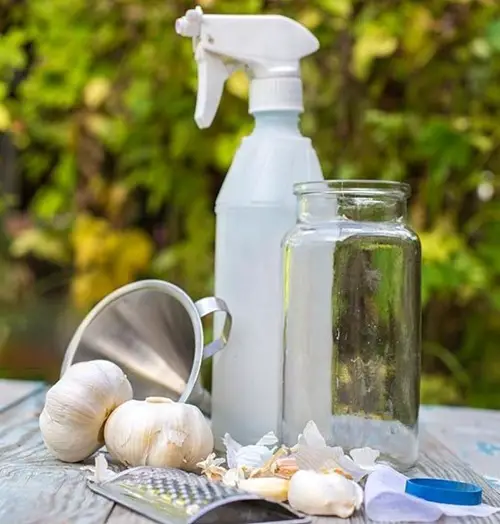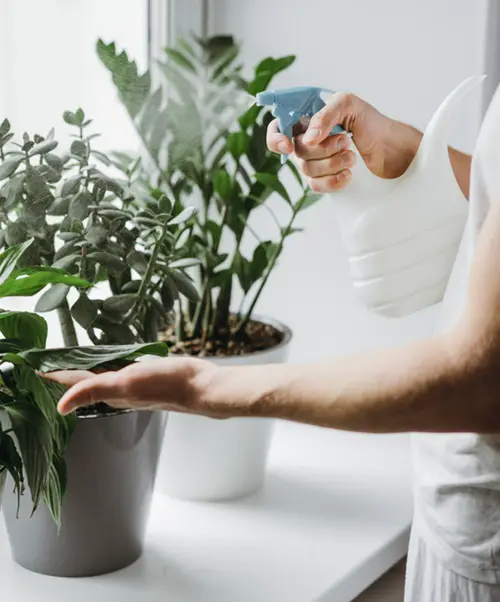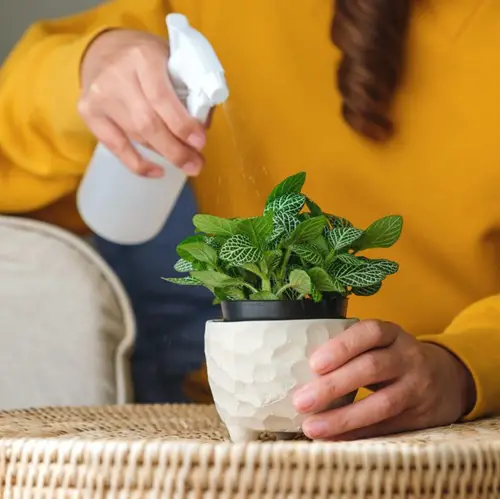Fed up with the frequent garden pests? Pour Water Over Crushed Garlic, then Spray it on Your Plants and watch the results!
Garden pests are troublesome and often turn out of control if not treated on time. Here’s one simple trick for you to make your pest combat easier – Pour Water Over Crushed Garlic, then Spray it on Your Plants!
Learn a Special Trick to Root Garlics here
Things You’ll Need
- A bowl of 10-12 crushed garlic cloves
- Clean, non-chlorinated water
- Spray bottle
How to Use Crushed Garlic Water on Your Plants and Garden? 
1. Crush some Garlic Cloves and Pour Water Into It
Take 10-12 garlic cloves in a bowl and crush them thoroughly using a rolling pin or kitchen pestle to make a paste. Now, fill the bowl with non-chlorinated water (1 gallon); cover it and let the mixture steep overnight.
2. Strain into a Spray Bottle
Strain the mixture in a bucket. Straining is required to prevent the garlic particles from clogging the nozzle. Lastly, transfer the solution to a spray bottle.
3. Spray it on Your Garden
Spray this concentrated garlic solution on the vegetable, fruit, and flower plants in the garden. Target the affected shoots, undersides of the foliage, leaf axil, and around the blossoms to remove the unwanted pests from the garden.
Learn some Home Remedies to Kill Mosquitoes here
Pro Tip: You can also add other kitchen ingredients, such as cayenne powder, turmeric powder, and crushed neem leaves, to increase the potency of the spray. Also, make sure to limit the usage to once or twice a week, which would otherwise affect the beneficial microbes in the soil.
Why Spray Garlic Water in the Garden?

Studies say using garlic water in the garden is a sustainable take to clear pests and an effective alternative to toxic chemical fertilizers. Garlic extracts are beneficial against most garden pests, including aphids, spider mites, powdery mildew, and others. Also, their pungent smell drives critters such as snails and slugs.
Unlike chemical pesticides, garlic water does not harm beneficial pollinators and bugs. Also, it does not pose any serious threat to children, pets, and aged people moving around in the garden.



